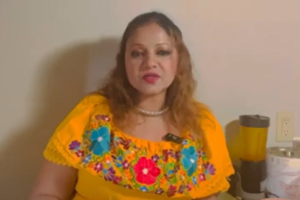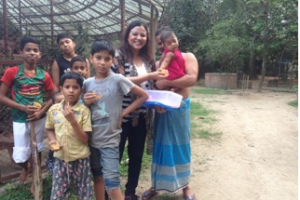Life and work are gradually returning to normal in Shanghai. My colleagues and I are back in the office. Restaurants and bars have reopened—with a temperature check at the door. Hellobike, China’s largest bike-sharing company (of which I am an investor), is reporting that ridership is back to 70 percent of the pre-pandemic level. The same is happening by varying degrees in the rest of China. The nightmare that felt as if it would last forever may be behind us—knock on wood. Let me use this teachable moment to share five things I learned about China’s society and government. China is fortunate to have the right leader at the right time.
Chinese people trust their political institutions. Our understanding of China has been dominated by the narrative that an authoritarian one-party state is by definition incapable of retaining genuine public trust. This narrative has overwhelmed our perceptions, but it’s time to put it aside. Now that Mother Nature has delivered something with such an impact, reality can no longer be ignored.
On Jan. 23, the Chinese government ordered the lockdown of the city of Wuhan and then the entire province of Hubei, with a total population of 56 million, making it the largest quarantine in human history. Two days later, all provinces except Tibet declared the highest level of a health emergency, and more than 760 million urban dwellers were confined to their homes, being allowed to go out only for essential needs with face masks mandatory in all public places. Most rural villages were also closed off. At the time, total reported infections and deaths nationwide were 571 and 17, respectively—rather low considering what transpired afterward around the world.
The entire nation was surprised by the magnitude of the measure. Overnight in Shanghai, a city of 24 million people, streets that were clogged with traffic only days before became empty of both people and automobiles. At first, I thought this would last a week, maybe two. But it went on—and on. People stayed home, and the streets remained empty.
This immediate and nearly total compliance by hundreds of millions of people came as a genuine surprise to me. If you have been to China, you would know how unruly people can seem. Regular Chinese police are unarmed. On the streets of Shanghai, it is not uncommon to see someone arguing, often aggressively, with police officers over a traffic ticket. There is no way to explain the complete submission to a massive lockdown like this for so long by so many other than voluntary. Yes, self-interest can explain it in part because no one wants to get sick. But if we compare this with other countries where large crowds of educated young people congregated on beaches and in clubs in open defiance of their governments’ orders and warnings (at least in the initial phase) and where harsh police enforcement is still going on, it is clear that self-interest isn’t enough as an explanation. Only a very high degree of trust by the people in their political institutions’ expertise and ability to protect them can result in such compliance.
Some may argue that such submission was due to China’s strict security apparatus. This is off the mark for two reasons. First, security forces are only effective against small groups of activists, not a vast population of hundreds of millions of people if they chose to disobey en masse. Second, throughout the epidemic, there were few reports and little evidence of mass coercive actions to enforce lockdowns.
The government also went to extraordinary lengths in its communication with the public. Every day, new data was released—by city, by province, and nationwide. Every hour, government experts were on TV talking in detail about the new coronavirus and the nation’s evolving response. Every newspaper was writing about the importance of social distancing. In other words, the trust was not blind. Opportunism and shirking responsibility are not within Xi Jinping’s character.
Chinese civil society is alive and well. If you were immersed in Chinese social media in early February, you might have drawn the opposite conclusion. Public anger was raging in the midst of the biggest national trauma since the end of the Cultural Revolution. The alert mechanism for local authorities to provide early warnings to Beijing, which the government established after the SARS epidemic 15 years ago, apparently failed in the initial stage of the coronavirus outbreak. Many speculated that the bureaucratic fear of delivering bad news up the official chain caused the delay, exposing a significant fault in China’s political system. The uproar reached a boiling point when Li Wenliang, the Wuhan doctor who first warned of the danger of the coronavirus in December and was muzzled by the local police, succumbed to the virus himself. If that’s all you saw, it might be understandable for you to see this as China’s Chernobyl moment or the beginning of a version of the Arab Spring, as some indeed claimed. But that’s not how it turned out.
When the central government acted to mobilize for the most sweeping counter-epidemic operation in human history, the country coalesced. Half a million volunteers went to the front lines in Hubei province, risking their health and lives as medics, quarantine workers, and logistics personnel. Nationwide, more than 2 million citizens have registered and served as volunteers. Social media began to be flooded with their inspiring stories and images. Cafes and restaurants were providing free food and drinks to volunteers, even though their businesses were suffering from catastrophic losses. One picture that went viral showed a Wuhan community worker covered shoulder to toe with medicine packages he was carrying for home delivery. Virtually every neighborhood in the country organized 24-hour checkpoints with volunteers and security personnel controlling access and checking people’s temperatures. Many communities also organized volunteers to check on the livelihoods of vulnerable residents like the elderly. Imagine this happening with 1.4 billion people, on every street, in every neighborhood, in every village! There has been virtually no crime.
On the internet, the government and various social institutions put out an enormous volume of information about the characteristics of the coronavirus and the progress of the pandemic. There was a massive public engagement on social media for the dissemination of information. Now I watch Western experts and authorities talking on CNN and BBC about such things as the length of time the virus can survive on hard surfaces or in aerosol form. But these are things tens of millions of Chinese netizens were already talking about, every day and every hour, back in February.
From the top-down, the government called for a “people’s war” against the pandemic. And this is exactly what happened, from the bottom up. I had more or less bought into the common assumption among many political thinkers that civil society was weak in China because the authoritarian party-state would not allow it to flourish. But now it occurred to me that this was based on the common liberal definition of civil society as something apart from or even in opposition to the state. If we look at Chinese civil society in the classical definition of the term, what Aristotle called koinonia politike—political community that is not distinct from the state—it appeared throughout this pandemic to be perhaps the most vibrant in the world.
Writer: Eric Li
Source: foreignpolicy.com






















